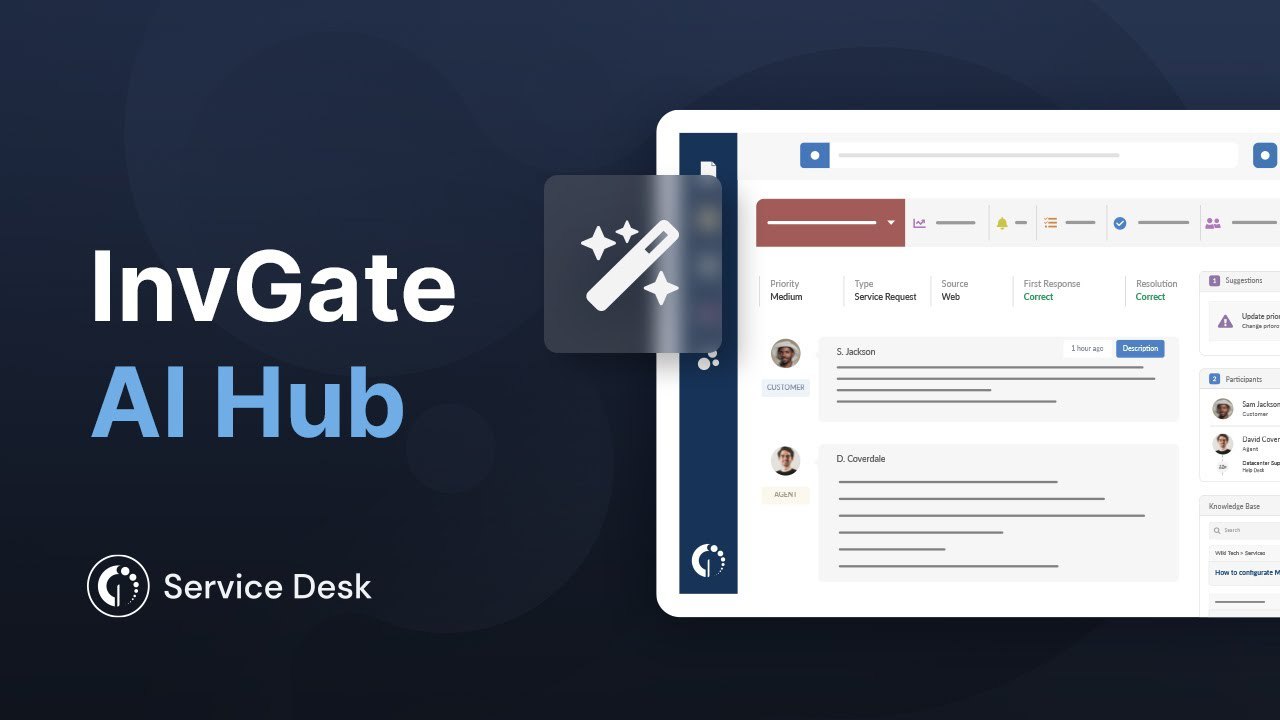AI agent use cases are rapidly expanding across enterprise operations as organizations discover where these systems deliver real business value. PwC research shows that 79% of organizations have already adopted AI agents to some extent, while 15% are exploring implementation.
The speed of this shift caught many by surprise. What began as experimental chatbots and simple automation has evolved into sophisticated enterprise AI agents that make independent decisions and adapt in real-time. Companies that hesitated while others experimented now find themselves racing to catch up.
The question is no longer whether to deploy AI agents, but where they'll deliver the most impact. In this article, we'll explore what AI agents are and how they work, as well as examine the most effective use cases for AI agents across different business functions.
What are AI agents?
AI agents are software entities capable of perceiving an environment, processing information, and taking actions toward a defined goal. Unlike static automation, agents are adaptive: they can analyze context, plan steps, execute tasks, and adjust behavior as they receive new inputs.
In enterprises, they are often designed as task-specific assistants. For example, an IT support AI agent may read a ticket, propose a solution, or even execute commands automatically. An HR-focused agent may guide employees through onboarding paperwork, respond to policy questions, or process leave requests.
The term agentic AI usually refers to these systems acting with a degree of autonomy rather than just waiting for a single input–output exchange.
How do AI agents work?
AI agents combine several components:
-
Perception – they process inputs from text, voice, databases, or APIs.
-
Reasoning – they use models (often LLMs or reinforcement learning frameworks) to decide what actions are needed.
-
Planning – they break down tasks into smaller steps that lead toward the objective.
-
Action – they perform tasks, which might include retrieving data, sending responses, or executing scripts.
-
Feedback loop – they learn from success or error signals to improve future performance.
In practice, enterprises usually connect AI agents to internal systems such as ITSM tools, ERP platforms, or CRMs. This integration allows them to perform concrete actions— resetting passwords, generating purchase orders, or sending customer emails —rather than just providing suggestions.
AI agent use cases
When we look across industries, some use cases stand out. These cases share a pattern: the tasks are repetitive, rule-based, and data-intensive. AI agents excel in environments where structured data and clear rules are available, and where automation can directly reduce manual workload. For instance, in marketing departments, AI agents are increasingly used alongside marketing automation services to streamline lead nurturing, campaign management, and customer segmentation with minimal manual input. Let's review some:
AI agents for IT support
IT support is often the first area where organizations adopt enterprise AI agents. The tasks are well-documented, repetitive, and structured — making them ideal for automation. Here are some of the top agentic AI use cases for IT:
-
Instant answers to employee IT questions
Employees often ask about VPN setup, system access, or policy details through Teams or Slack. Instead of raising a ticket, an AI agent can pull contextual answers directly from internal knowledge bases or linked sources like Confluence. With InvGate’s Virtual Service Agent, responses arrive instantly, reducing unnecessary tickets while keeping employees working without interruptions. -
Automated password resets
Password-related tickets consistently rank among the highest in IT support. AI agents can authenticate the employee, initiate a reset, or trigger a predefined workflow without waiting for human approval. -
Guided troubleshooting for frequent issues
When employees encounter recurring technical problems — like connectivity errors or malfunctioning apps — an AI agent can ask clarifying questions, walk them through fixes, and use knowledge articles in context. If the issue persists, the agent compiles the conversation and creates a detailed ticket for IT to handle, saving time during escalation. -
Smarter service request creation
Requests often come in vague or incomplete, requiring manual interpretation. An AI agent can parse the message, identify the relevant catalog item, attach supporting details, and send it to the right team. With InvGate’s Service Agent, requests arrive structured and categorized, giving IT a cleaner queue from which to work. -
Incident clustering and resolution suggestions
AI agents can detect when multiple employees are reporting the same issue — like a network outage — and cluster those incidents together. They automatically notify IT of the broader impact and surface past solutions for similar cases. InvGate's AI Hub includes a functionality to detect common problems and major incident candidates, which accelerates problem resolution. -
Agent assistance during escalations
When a case requires human intervention, AI agents provide support staff with summaries of the issue, related tickets, and relevant knowledge articles. Instead of digging through logs, the IT agent has context upfront, reducing handling time and improving accuracy.

HR AI agent use cases
Human Resources teams field repetitive questions and handle standardized processes that lend themselves well to automation. These are among the most useful enterprise AI agent use cases because they improve employee experience while reducing manual effort.
-
Employee FAQs and policy questions
Questions about leave balances, benefits, or policy details surface constantly. Instead of waiting for HR staff, an AI agent can provide instant answers through chat channels. InvGate’s Virtual Service Agent can retrieve HR documentation from your knowledge base to deliver accurate responses, keeping employees informed without slowing HR down. -
Onboarding support
New hires often need equipment requests, policy overviews, and training resources. An AI agent can guide them step by step, from completing digital paperwork to requesting laptops or system access. -
Leave and time-off requests
Instead of emailing HR or filling out complex forms, employees can submit requests directly to an AI agent. The agent can check policies for the user and even initiate approval workflows. -
Offboarding workflows
When an employee leaves, HR must coordinate with IT and facilities. AI agents can automatically guide the process: revoke access, schedule exit interviews, and ensure compliance.
AI agents for inventory management
Inventory and procurement rely on structured data, which makes them a natural fit for top agentic AI use cases. AI agents can continuously monitor, forecast, and automate stock-related tasks.
-
Automated stock monitoring
Instead of waiting for manual checks, AI agents track stock levels in real time. When thresholds are reached, the agent alerts procurement teams or even creates purchase requests. -
Demand forecasting
By analyzing historical usage and purchase cycles, AI agents predict shortages and recommend restock schedules. This reduces delays caused by unavailable equipment or supplies. -
Supplier management
AI agents track vendor commitments, expected delivery times, and purchase order statuses. If a delivery is late, the agent automatically notifies stakeholders and escalates the issue. -
Hardware request fulfillment
Through an enterprise AI agent, employees can request laptops, peripherals, or software licenses directly from chat. The agent helps them fill out the initial form and triggers the right approval workflow. Once submitted, the agent keeps the employee updated by bringing back information about the request status — whether it’s awaiting approval, in progress, or ready for delivery.
Finance AI agent use cases
Finance departments work with structured, high-volume data, making them prime candidates for enterprise AI agents. Automating repetitive checks and approvals helps teams focus on higher-level analysis.
-
Invoice processing
AI agents can extract details from invoices, match them against purchase orders, and flag discrepancies for review. This minimizes errors and accelerates approvals. -
Expense validation
Employees often submit receipts or claims that require verification. AI agents validate them against policy rules and either approve, reject, or route them for exceptions. -
Budget monitoring and alerts
Instead of relying on monthly reviews, AI agents track spending in real time. When costs approach or exceed limits, they generate alerts for finance managers. -
Approval workflows
For requests involving budget allocations — such as hardware purchases— the AI agent can integrate with approval chains. It ensures requests align with financial rules before escalating, creating a transparent, automated flow.
Sales and marketing AI agent use cases
Customer-facing areas like sales and marketing benefit from use cases for AI agents because they handle large volumes of data and interactions. Agents personalize outreach, automate follow-ups, and optimize campaigns.
-
Lead qualification
AI agents assess incoming leads, assign scores, and prioritize outreach. This ensures sales teams spend time on the highest-potential opportunities. -
Customer support
When customers reach out with routine questions, AI agents provide real-time answers, escalating only complex cases. Integrated into systems like InvGate’s VSA, they can also create structured support tickets when needed. -
Campaign optimization
AI agents analyze marketing performance data, testing variables like subject lines or timing. They adjust campaigns continuously for maximum impact. -
Sales process assistance
Agents guide reps by surfacing product information, pulling contract templates, or checking pricing rules during live negotiations. - Voice AI for inbound and outbound calls
AI voice agents can handle appointment scheduling, order status, and payment reminders with natural, ultra-low-latency conversations. Teams can automate phone calls with AI to qualify leads, run surveys, and triage support while syncing outcomes to the CRM in real time. Faster turn-taking reduces dead air, improving CSAT and conversion rates.
Takeaways
AI agents are no longer experimental — they are beginning to deliver measurable value in enterprises. If we put together the numbers mentioned earlier, it means almost every organization is considering them. Only 6% of organizations are not yet considering AI agents — a rare level of consensus in enterprise technology. These are the organizations that are currently doing research on "what is an ai agent or how to integrate these in an effective manner".
These top agentic AI use cases shorten sales cycles while ensuring consistency. Organizations can adopt them where they provide real impact by understanding how they work and evaluating practical use cases.
For decision-makers, the priority now is to identify which processes in their organization match the patterns that agents handle best: repetitive, rule-based, and data-intensive tasks. Starting with focused pilots can help validate the benefits and build a foundation for broader adoption.















